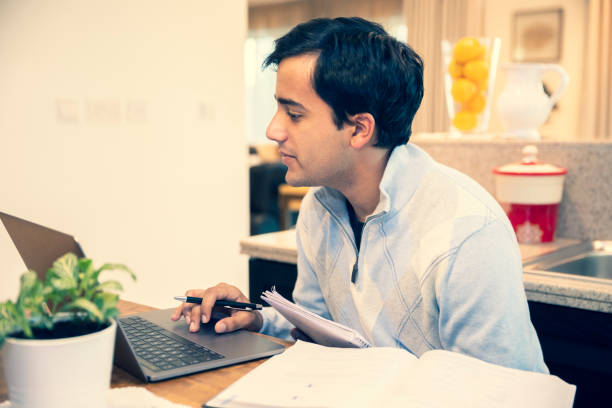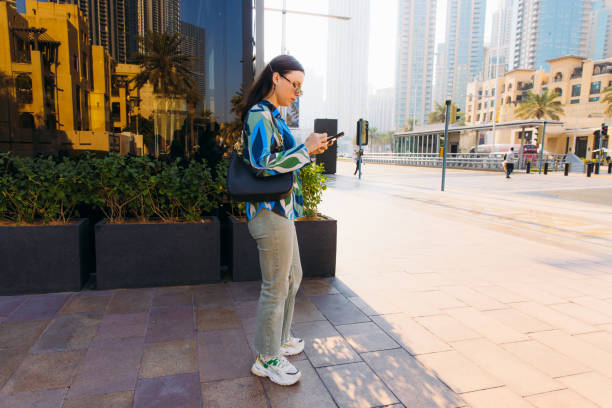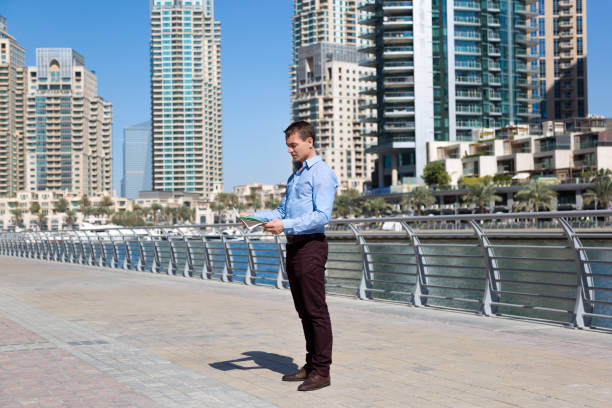When contemplating a move to Dubai, one of the most pressing concerns for single persons is the anticipated range of living expenses they will incur. Boasting a modern lifestyle and tax-free incomes, Dubai attracts expatriates worldwide, but it’s important to budget for monthly costs to ensure financial comfort. In this article, we peel back the layers of glitz to assess the average costs faced by individuals living alone in Dubai, from housing expenses to grocery expenses. A savvy single person can navigate the monthly expenses while enjoying what the city has to offer.
Housing: Your Biggest Monthly Expenditure
The cornerstone of every monthly budget is housing. Your monthly rent in Dubai will significantly vary depending on the neighborhood and type of accommodation. For singles, studio and one-bedroom apartments are popular choices. An expat’s monthly rent can be their most considerable monthly expense, and therefore careful choice is crucial to managing costs.
Rent Prices in Popular Districts
For instance, a studio in Jumeirah Lake Towers could be cheaper compared to Downtown Dubai. Average rents in newer developments like Dubai Sports City are becoming popular due to more reasonable rates. Be prepared to pay anywhere from AED 30,000 to AED 100,000 per year, depending on the luxury and location. Albeit expensive, these central locations offer great amenities and proximity to key areas.
Utilities: Additional Costs to Consider
On top of the monthly rent, utility bills for water, electricity, and cooling services add to the monthly housing expenses. Be mindful that during the summer months, your electricity bill can spike due to air conditioning needs. An average single’s monthly utility bill could range from AED 300 to AED 700.

Food and Groceries: Daily Sustenance Costs
Food is a variable expense where singles in Dubai have some control. Opting to cook at home rather than eating out can lead to considerable savings. Grocery prices have a wide range as they’re affected by your dietary preferences and where you shop. Local markets could offer savings over larger chain supermarkets.
Eating Out vs. Cooking at Home
Dubai is a gastronomic playground and dining out is tempting. However, if you’re aiming to keep your monthly costs in check, preparing meals at home is the way to go. Here’s how dining options compare in terms of budget:
- Average monthly grocery shopping for one person: AED 800 to AED 1,500.
- Eating out at mid-range restaurants: AED 60 to AED 100 per meal.
Transportation in Dubai: Getting Around the City
Across Dubai’s vast stretches, transportation costs can add up. Singles must decide between the convenience of personal vehicles versus the more economical public transport. The metro system in Dubai is extensive and reliable, providing budget-friendly travel options around the city.
Public Transport vs. Owning a Car
Singles can manage their transportation expenses through monthly passes. A car comes with additional costs such as fuel, maintenance, and parking fees. The table below compares the average monthly transportation costs for singles in Dubai when using public transport versus owning a car.
| Transportation Method | Monthly Cost |
|---|---|
| Public Transport (Metro & Buses) | AED 350 |
| Car (Petrol, Maintenance, Insurance) | AED 1,500+ |

Lifestyle and Leisure: Entertainment and Socializing
The glitzy city of Dubai offers ample opportunity for leisure and socialization, from beach clubs to chic cafes. For singles, participating in such activities is essential for a balanced life but does add to the monthly expenses.
Memberships and Outing Expenses
Fitness clubs and social group memberships are popular in Dubai and can serve as a great way to meet people. Prices for such memberships can vary. Additionally, the costs of outings such as movie tickets, brunches, and other events can contribute a significant amount to your monthly budget. A wise move would be to set aside a specific portion of your income for entertainment.
Health Insurance and Medical Costs
In Dubai, health insurance is mandatory, and its cost should be included in the average monthly expenses. Your employer may provide basic coverage, or you might need to purchase your insurance plan. Basic health insurance could start at about AED 600 per year, and potentially more depending on the level of coverage you choose.
Besides insurance premiums, you should budget for out-of-pocket medical expenses, such as doctor’s visit fees and medications. These costs could vary, but having a financial buffer is essential.
Apparel and Personal Care
Living in Dubai would not be complete without considering personal care and fashion. The emirate offers a range of options, from luxury brands to budget-friendly apparel. Single persons residing in Dubai will find that outfitting themselves for the professional and social scenes is an investment.
From Fashion to Basic Necessities
Monthly expenses for clothing and personal care products can vary dramatically based on individual preferences and lifestyle. Here are two scenarios outlining the potential costs:
- Basic monthly personal care and grooming: AED 200 to AED 500.
- Fashion and clothing allowances: AED 300 to AED 1,000.
Miscellaneous Expenses to Keep in Mind
Apart from the more predictable expenses, there are always miscellaneous costs to consider, such as mobile phone plans, household items, and occasional splurges. These can fluctuate from month to month but should be accounted for in any comprehensive budget to avoid surprises.
From Mobile Plans to Household Items
A monthly mobile phone plan with a decent amount of data can cost around AED 200. Household items, including cleaning supplies and personal items, might range from AED 100 to AED 300 monthly. Always ensure you have some savings set aside for emergencies and irregular expenses such as furniture or tech upgrades.

Conclusion
The glossy lifestyle advertised by Dubai is attainable, but it requires a careful understanding of the average monthly expenses. Housing, food, and transportation are the core areas where your budget will be allocated, but the ancillary costs of social and personal care also play a significant role. While living in Dubai can be luxurious, with astute financial planning, singles can enjoy a comfortable life balanced with the fantastic experiences the city offers.
FAQs
What is the average rent for an apartment in Dubai?
Average rent prices vary widely based on location and type of apartment. As of 2023, a studio in a less expensive area might cost around AED 30,000 to AED 50,000 per year, while upscale districts can command over AED 70,000 annually for a similar space.
Can you save money by using public transportation in Dubai?
Yes, public transportation in Dubai is efficient and can be cost-effective. A monthly pass for the metro and buses is around AED 350, which can be much cheaper than maintaining a car and dealing with its related costs.
How much should I budget for food and groceries each month?
A single person might spend approximately AED 800 to AED 1,500 per month on groceries if cooking at home. Dining out frequently will increase this budget significantly.
Is healthcare expensive for singles in Dubai?
Healthcare can be costly without insurance. However, health insurance is mandatory in Dubai, and many employers provide this for their employees. Basic coverage plans may start around AED 600 per year.
Are there any hidden costs I should be aware of when living in Dubai?
While not exactly hidden, one should consider annual municipality housing fees (5% of your annual rent), salik (toll) charges if you drive, and occasional expenses like furniture or electronics, which can add up. It’s essential to have a budget buffer for unforeseen costs.



